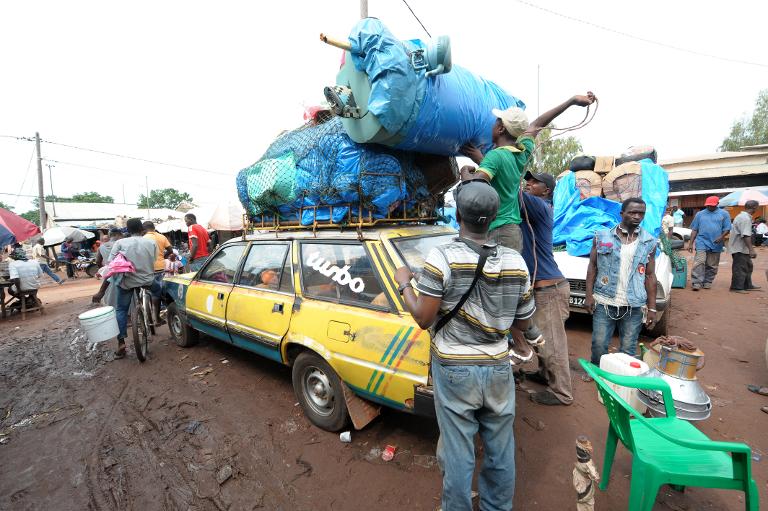Senegal opens Guinea border as Ebola recedes
People and goods can now "move freely by land between the two countries," the interior ministry said in a statement cited by the state-run Senegalese Press Agency.
Guinea, Liberia and Sierra Leone have been devastated by the outbreak, which began in December 2013, but all have seen recent signs that the virus is retreating, with the number of new cases dropping weekly.
Senegal said it would put in place measures at its land crossings to ensure people entering from Guinea were Ebola-free, the report said.
The news was met with applause in the Guinean capital Conakry, according to an AFP correspondent on the street, with car horns sounding and pedestrians chanting as local radio announced the reopening.
"This is an important and good piece of news that we have just learned today ... Praise God," said shopkeeper Mariama Barry.
"See my shop. It is half empty -- or, if you prefer, half full -- because of this closure that almost ended up choking us."
El-Hajj Abdoulaye Biro Diallo, an owner of two clothing shops who imports from Dakar, described his relief, saying the closure had hit traders who couldn't afford to source clothing from farther afield.
At the international bus station in Conakry, drivers quickly resumed service to Diawbhe in Senegal, while union officials confirmed taxis would begin ferrying passengers to Dakar the following day.
Senegal initially closed its land border with Guinea in March last year as the number of people infected with the deadly disease escalated at an alarming rate.
The order affected crossings in southern Senegal which were heavily used by traders, particularly during a weekly market attended by thousands from neighbouring countries.
The border reopened in May but was closed again in August after an infected student crossed over from Guinea.
Senegal was declared Ebola-free after the student recovered without spreading the virus, and air as well as sea crossings from the three other nations have been permitted since November.
The worst-ever outbreak of the haemorrhagic fever has officially killed nearly 9,000 in a year, although experts believe the real toll could be significantly higher.

Legal Disclaimer:
MENAFN provides the
information “as is” without warranty of any kind. We do not accept
any responsibility or liability for the accuracy, content, images,
videos, licenses, completeness, legality, or reliability of the information
contained in this article. If you have any complaints or copyright
issues related to this article, kindly contact the provider above.
Most popular stories
Market Research

- Tradesta Becomes The First Perpetuals Exchange To Launch Equities On Avalanche
- Nigel Farage To Headline At UK's Flagship Web3 Conference Zebu Live 2025
- Dexari Unveils $1M Cash Prize Trading Competition
- Nebeus Overfunds Equity Crowdfunding Campaign With €3.6M Raised, Reflecting Growing Demand For Regulated Cryptofinance Solutions
- “Farewell To Westphalia” Explores Blockchain As A Model For Post-Nation-State Governance
- Digital Gold ($GOLD) Officially Launches On Solana, Hits $1.8M Market Cap On Day One






















Comments
No comment